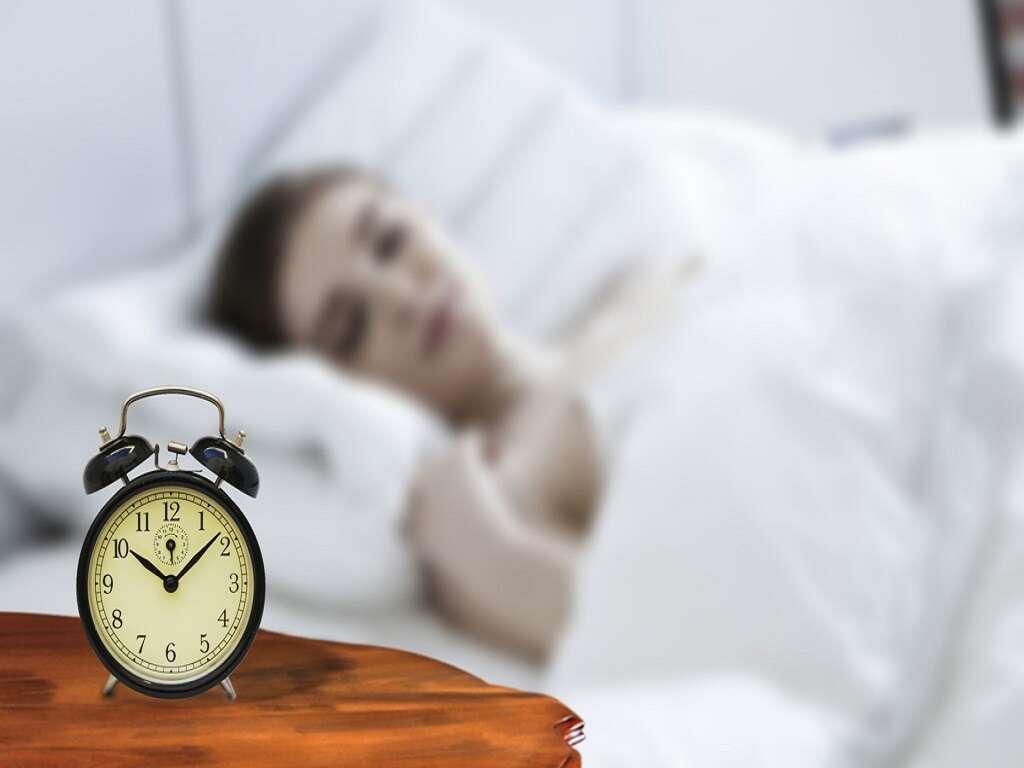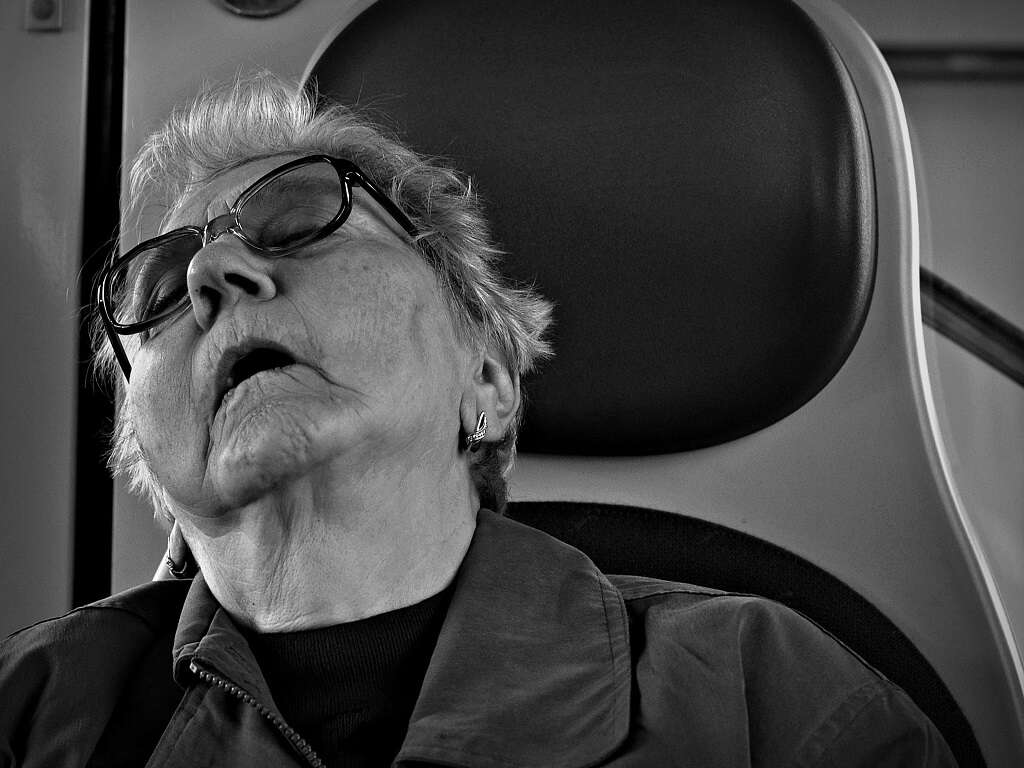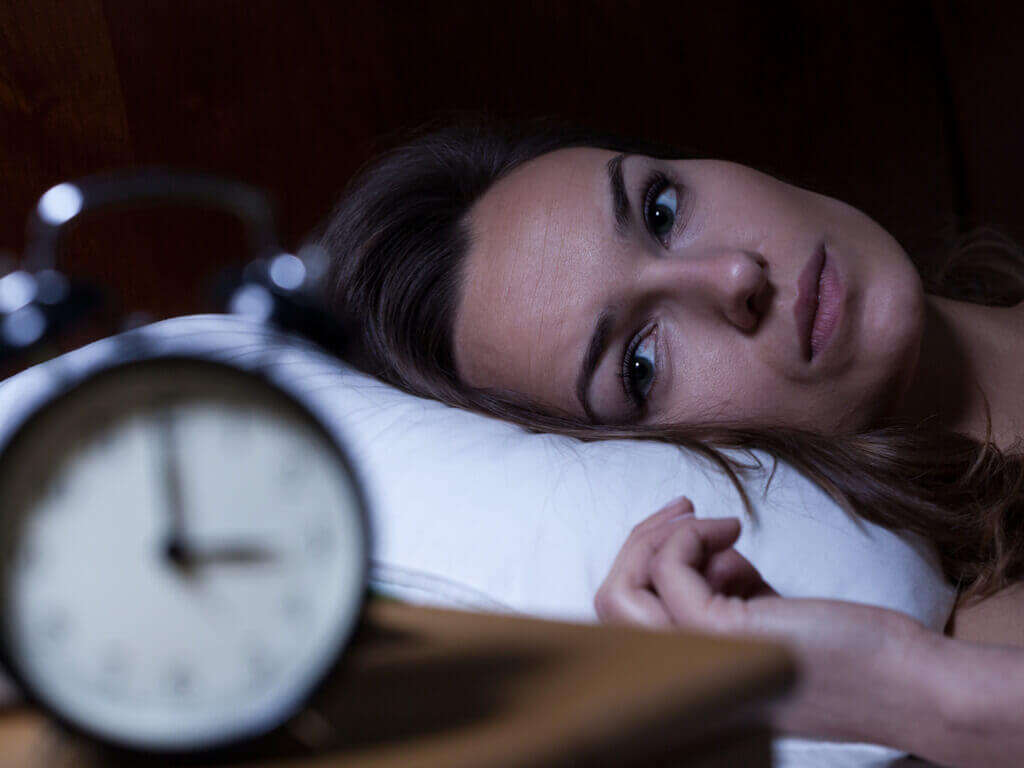10 Hypersomnia Symptoms
 Article Sources
Article Sources
- 1. Miglis, Mitchell G., et al. 'Frequency and Severity of Autonomic Symptoms in Idiopathic Hypersomnia.' Journal of Clinical Sleep Medicine, 15 May 2020, jcsm.aasm.org/doi/10.5664/jcsm.8344
- 2. 'Hypersomnia Information Page.' National Institute of Neurological Disorders and Stroke, www.ninds.nih.gov/Disorders/All-Disorders/Hypersomnia-Information-Page
- 3. 'Idiopathic Hypersomnia.' Mayo Clinic, www.mayoclinic.org/diseases-conditions/hypersomnia/symptoms-causes/syc-20362332
- 4. 'Hypersomnia: Causes, Symptoms, and Treatments.' Sleep Foundation, 11 Feb. 2021, www.sleepfoundation.org/hypersomnia
- 5. 'About Idiopathic Hypersomnia.' Hypersomnia Foundation, 4 June 2021, www.hypersomniafoundation.org/ih
- 6. I;, Kas A;Lavault S;Habert MO;Arnulf. 'Feeling Unreal: a Functional Imaging Study in Patients with Kleine-Levin Syndrome.' Brain : a Journal of Neurology, U.S. National Library of Medicine, pubmed.ncbi.nlm.nih.gov/24785943
Hypersomnia, sometimes called excessive daytime sleepiness (EDS), is a sleep disorder characterized by extreme daytime sleepiness, even after sleeping six to seven hours or more. Some people with hypersomnia may sleep for very long periods. Symptoms usually appear between the ages of 17 and 24.1Miglis, Mitchell G., et al. ‘Frequency and Severity of Autonomic Symptoms in Idiopathic Hypersomnia.’ Journal of Clinical Sleep Medicine, 15 May 2020, jcsm.aasm.org/doi/10.5664/jcsm.8344
Primary hypersomnia may be described as idiopathic hypersomnia when symptoms occur without an identifiable cause. The disorder is referred to as secondary hypersomnia when it has a known cause. Secondary hypersomnia can occur as a side effect of certain medications or an underlying illness or injury. It may also be a response to stress or lifestyle.5‘About Idiopathic Hypersomnia.’ Hypersomnia Foundation, 4 June 2021, www.hypersomniafoundation.org/ih
Daytime Sleepiness
Excessive sleepiness during the day is the most prevalent symptom of hypersomnia. People may feel like they need to sleep, regardless of the time of day. This can be dangerous and may even lead to vehicle accidents if EDS occurs while driving. EDS episodes may interrupt meals or interfere with conversations and other social interactions.3‘Idiopathic Hypersomnia.’ Mayo Clinic, www.mayoclinic.org/diseases-conditions/hypersomnia/symptoms-causes/syc-20362332
Individuals with hypersomnia may take long naps during the day without feeling refreshed. EDS is sometimes associated with poor work or academic performance and may contribute to poor coordination, impaired motor skills and slow reaction times.5‘About Idiopathic Hypersomnia.’ Hypersomnia Foundation, 4 June 2021, www.hypersomniafoundation.org/ih

Oversleeping
The amount of sleep a person needs changes over time. Most adults may function well with six to eight hours of sleep. People with hypersomnia may sleep up to 10 or 12 hours each night.2‘Hypersomnia Information Page.’ National Institute of Neurological Disorders and Stroke, www.ninds.nih.gov/Disorders/All-Disorders/Hypersomnia-Information-Page
Individuals affected by hypersomnia may have trouble keeping a job or attending school because they can't wake up on time, and they may not be awake long enough to fulfill daily responsibilities. In extreme cases, people with hypersomnia may sleep up to 20 hours per day.4‘Hypersomnia: Causes, Symptoms, and Treatments.’ Sleep Foundation, 11 Feb. 2021, www.sleepfoundation.org/hypersomnia

Anxiety
Hypersomnia sometimes occurs along with depression, anxiety and mood disorders. It may be hard to tell if hypersomnia is a cause or a symptom in some cases.4‘Hypersomnia: Causes, Symptoms, and Treatments.’ Sleep Foundation, 11 Feb. 2021, www.sleepfoundation.org/hypersomnia
People with hypersomnia may feel irritable and agitated or lose patience with others. Mood swings may be extreme and create difficulties in personal and social relationships. Hypersomnia may contribute to seasonal affective disorder if extended sleep hours limit exposure to sunlight.1Miglis, Mitchell G., et al. ‘Frequency and Severity of Autonomic Symptoms in Idiopathic Hypersomnia.’ Journal of Clinical Sleep Medicine, 15 May 2020, jcsm.aasm.org/doi/10.5664/jcsm.8344

Appetite Changes
People with hypersomnia may experience changes in appetite. Some people may lose interest in food or forget to eat meals. Sleeping for prolonged periods on a regular basis may not leave enough time to eat appropriately during the day.1Miglis, Mitchell G., et al. ‘Frequency and Severity of Autonomic Symptoms in Idiopathic Hypersomnia.’ Journal of Clinical Sleep Medicine, 15 May 2020, jcsm.aasm.org/doi/10.5664/jcsm.8344
Hypersomnia may also lead to increased appetite and weight gain. Overeating may occur in response to low energy levels and a constant feeling of tiredness. People may engage in mindless eating, or eating without thinking about it, and consume more calories than they realize.5‘About Idiopathic Hypersomnia.’ Hypersomnia Foundation, 4 June 2021, www.hypersomniafoundation.org/ih

Brain Fog
People sometimes use the term brain fog to describe problems with memory, attention and concentration. Individuals affected by hypersomnia may experience brain fog, slurred speech, increased forgetfulness and excessively slow thought processes.2‘Hypersomnia Information Page.’ National Institute of Neurological Disorders and Stroke, www.ninds.nih.gov/Disorders/All-Disorders/Hypersomnia-Information-Page
Hypersomnia may interfere with the ability to create new memories or recall past events. The disorder may also cause impaired judgment related to social interactions. Affected individuals may struggle to concentrate and have trouble learning new things at school or work.5‘About Idiopathic Hypersomnia.’ Hypersomnia Foundation, 4 June 2021, www.hypersomniafoundation.org/ih

Physical Symptoms
Hypersomnia is sometimes associated with physical symptoms affecting the body. Some people report discomfort related to body temperature, such as heavy sweating, shivering or feeling too warm.5‘About Idiopathic Hypersomnia.’ Hypersomnia Foundation, 4 June 2021, www.hypersomniafoundation.org/ih
Individuals with hypersomnia may experience symptoms related to sleeping for long periods, such as back pain, muscle aches, dizziness and sore spots on pressure points, including the tailbone, knees, hips and shoulders. Fainting, headaches, indigestion and rapid heartbeat are also possible symptoms.2‘Hypersomnia Information Page.’ National Institute of Neurological Disorders and Stroke, www.ninds.nih.gov/Disorders/All-Disorders/Hypersomnia-Information-Page

Sleep Drunkenness
Sleep drunkenness, sometimes called sleep inertia, describes the transitional period between sleeping and waking up. Most people experience a few minutes of sleep inertia, but hypersomnia may result in long periods of sleep inertia that can last up to four hours.4‘Hypersomnia: Causes, Symptoms, and Treatments.’ Sleep Foundation, 11 Feb. 2021, www.sleepfoundation.org/hypersomnia
People may experience a strong desire to go back to sleep and force themselves to get out of bed. Individuals affected by sleep drunkenness may speak to other people and answer questions without remembering the conversations later.2‘Hypersomnia Information Page.’ National Institute of Neurological Disorders and Stroke, www.ninds.nih.gov/Disorders/All-Disorders/Hypersomnia-Information-Page

Automatic Behavior
Automatic behavior refers to performing tasks without consciously thinking about them. Behaviors may be repeated daily routines, but inappropriate actions can also occur. Putting milk into a cabinet or laundry into a dishwasher are examples of inappropriate automatic behavior.1Miglis, Mitchell G., et al. ‘Frequency and Severity of Autonomic Symptoms in Idiopathic Hypersomnia.’ Journal of Clinical Sleep Medicine, 15 May 2020, jcsm.aasm.org/doi/10.5664/jcsm.8344
Engaging in automatic behavior can be dangerous if drivers make a turn or miss an exit without thinking. Automatic behavior at work may have serious consequences, such as a medication error in a hospital or an unsecured beam at a construction site.1Miglis, Mitchell G., et al. ‘Frequency and Severity of Autonomic Symptoms in Idiopathic Hypersomnia.’ Journal of Clinical Sleep Medicine, 15 May 2020, jcsm.aasm.org/doi/10.5664/jcsm.8344

Hallucinations
In some cases, hallucinations occur as a symptom of hypersomnia. A hypnagogic hallucination occurs while falling asleep, and a hypnopompic hallucination occurs while waking up. These hallucinations may be very vivid and frightening.1Miglis, Mitchell G., et al. ‘Frequency and Severity of Autonomic Symptoms in Idiopathic Hypersomnia.’ Journal of Clinical Sleep Medicine, 15 May 2020, jcsm.aasm.org/doi/10.5664/jcsm.8344
A hallucination may be mistaken for a nightmare, especially if visual images include people or creatures surrounding the sleeper. Most hallucinations are visual, but they can also affect other senses. Some people report hearing sounds that aren't real and feeling like something is touching them.1Miglis, Mitchell G., et al. ‘Frequency and Severity of Autonomic Symptoms in Idiopathic Hypersomnia.’ Journal of Clinical Sleep Medicine, 15 May 2020, jcsm.aasm.org/doi/10.5664/jcsm.8344

Derealization
An individual experiencing derealization as a symptom of hypersomnia may feel detached from reality. People have described derealization as a feeling of looking at themselves from outside their own bodies.6I;, Kas A;Lavault S;Habert MO;Arnulf. ‘Feeling Unreal: a Functional Imaging Study in Patients with Kleine-Levin Syndrome.’ Brain : a Journal of Neurology, U.S. National Library of Medicine, pubmed.ncbi.nlm.nih.gov/24785943
Individuals may feel like they've lost control of their own feelings, thoughts or actions. Derealization is also defined as an altered perception that makes a person's surroundings appear foggy, visually distorted, surreal or dreamlike. Other people may seem mechanical, unreal or unfamiliar.6I;, Kas A;Lavault S;Habert MO;Arnulf. ‘Feeling Unreal: a Functional Imaging Study in Patients with Kleine-Levin Syndrome.’ Brain : a Journal of Neurology, U.S. National Library of Medicine, pubmed.ncbi.nlm.nih.gov/24785943











